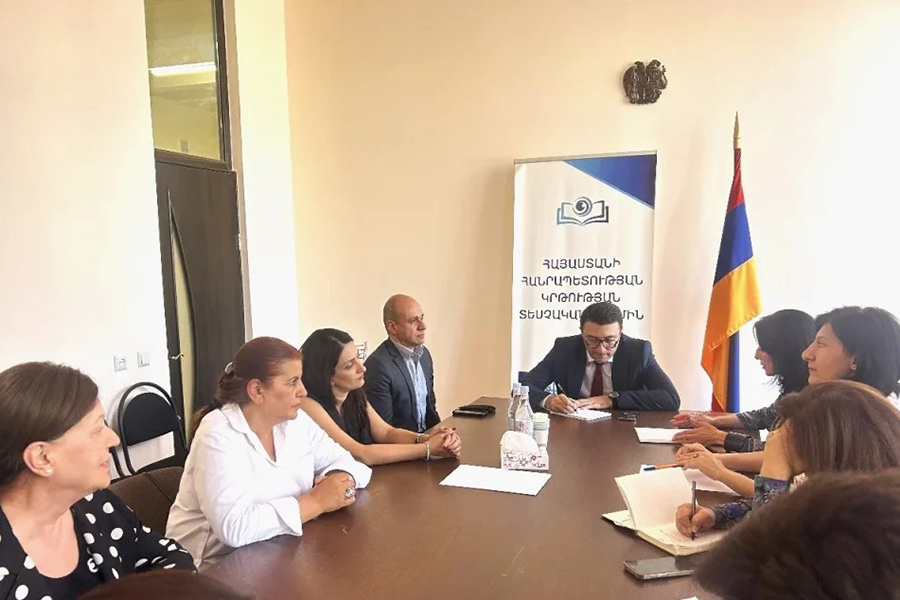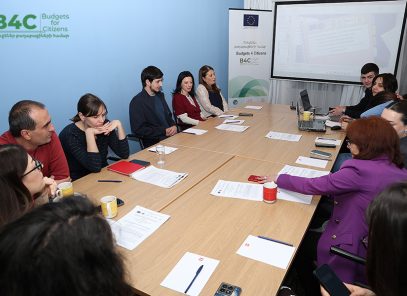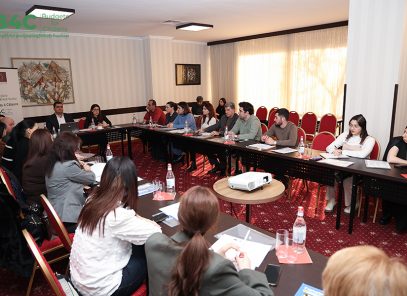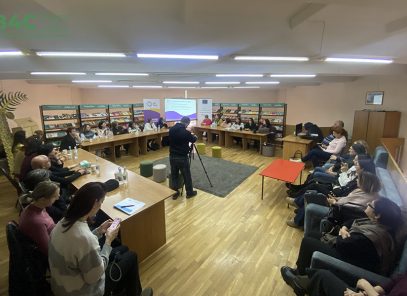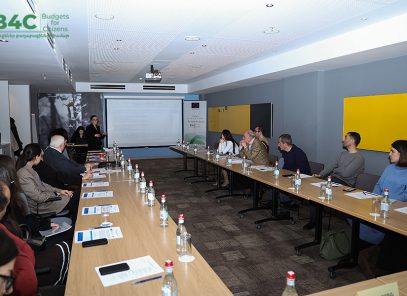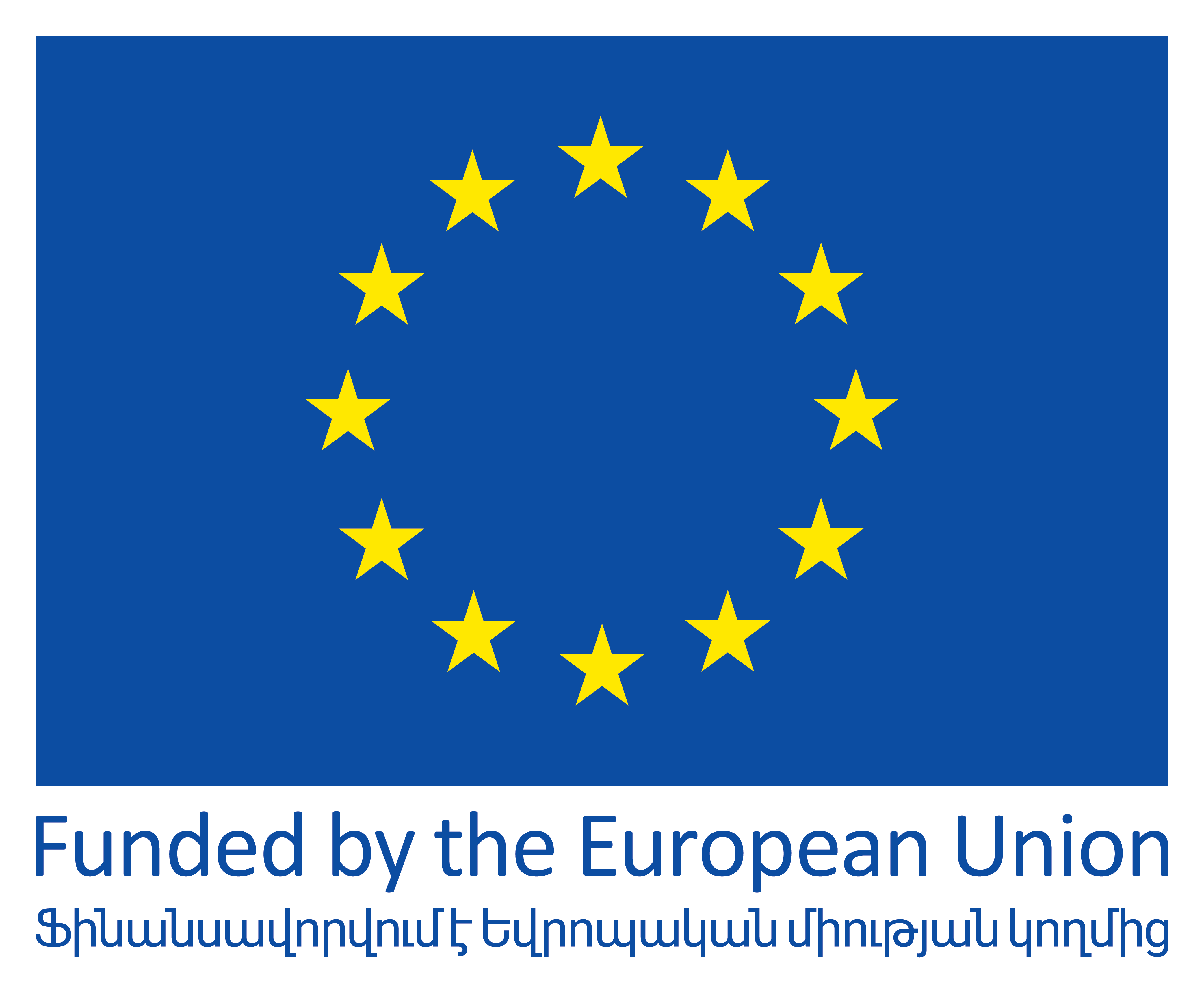On 6 October, the “Media for Education” NGO presented to the Education Inspectorate of the RA the results of the study of essays of the 9th grade students, who are writing essays as a final exam for the second year already. Issues related to the participatory stage for passing the essay as a final exam, the process of conducting the examinations and evaluating the work were discussed.
The Head of the Education Inspectorate of the Republic of Armenia, Mr. Vagharshak Matikyan, and his deputies Ms Raisa Galstyan and Mr. Arsen Baghdasaryan, Assistant to the Head of Inspectorate Ms Anush Ayvazyan, Head of the General Education Department, Mr. Suren Avetisyan, Head of the Risk Assessment Department Ms Zaruhi Mikayelyan, and Public Relations Officer Ms Varduhi Petrosyan attended the meeting. The representatives of the Inspectorate requested clarifications on the issues raised
Ms Anush Martirosyan, President of the “Media for Education” NGO, noted that after reviewing the content of the 95 essays, studying the deadlines regarding the essay in the adopted legal acts, as well as the problems that NGO has become aware of and which have been documented in the written works, it becomes clear that strict control is necessary.
Teacher Ms Nelly Hayrapetyan, co-founder of the “Media for Education” NGO, emphasized that the average score of the 95 works she studied did not exceed 11 points, and about 30 percent of the works received the minimum score. This, according to the teacher, proves that even the children studying in Tavush are not yet ready to take the essay exam. The teacher presented her professional conclusions regarding the content of the essays and noted that the content of education and educational programs are of key importance in this matter. According to Nelly Hayrapetyan, teaching and evaluating essay writing in the context of the state standard for general education already requires superhuman efforts, and the existing various problems and shortcomings only exacerbate the situation.
Special educator Ms Susanna Davtyan, co-founder of the “Media for Education” NGO, emphasized that if we want to understand why the essays lack creative thinking, we need to address the question of how the children’s education was organized in previous years and what the main problems are.
During the discussion, Anush Martirosyan highlighted the issue related to the grading scale as well. She noted that a study of 95 essays written in June 2025 revealed that some teachers worked with doubled points, while others did not. This situation shows that the application of a unified grading standard was problematic. Although the grading rubric is set at 10 points, according to the RA Ministry of Education, Science Culture and Sports, yet the grading was calculated on a 20-point scale. However, as the study of the essays and interviews with teachers in Tavush show, not all teachers were properly informed about how and on what scale they should evaluate. According to Anush Martirosyan, this clearly indicates that teachers were not given the necessary instructions in a timely and proper manner. In addition, representatives of the “Media for Education” NGO testified that some teachers assigned a common score (for literature and history), while others assessed separately, for example, knowledge of literature or history, and there are cases when only a score for one subject was indicated. Meanwhile, we are talking about an integrated essay.
Ms Ani Azatyan, a high school teacher who teaches Armenian language and literature and also studied the essays at the request of the “Media for Education” NGO, ruled out the possibility of assessing intersecting concepts in these conditions. According to the teacher, if we are talking about intersecting concepts, then analytical thinking should be manifested in the joint, substantive context of history and literature. She noticed that the children mainly copied from the given texts, on the basis of which they were supposed to write down their thoughts.
The Head of the Inspection Body, Vagharshak Matikyan, was interested in how teaching essay writing impacts teachers’ work.
In response Nelly Hayrapetyan said that the work will be enjoyable if free thinking is developed from the first grade, gradually reaching the stage when the student is ready to learn writing an essay, and then, only after some time to take an exam. Otherwise, according to the teacher – co-founder of the “Media for Education” NGO, it is pointless to talk about essays, intersecting concepts, critical thinking, and a creative child.
The teachers who met with the Head of the Inspection Body suggested first checking whether the teachers taking the exam can write essays themselves, and only then think about holding an essay exam for children in all regions.
Vagharshak Matikyan considered it important to clarify the underlying reasons for the issues raised. He suggested mapping the issues in order to understand the approach to be taken in monitoring. The Head of the Education Inspectorate of the RA stated that the issues raised would receive due attention.
Vagharshak Matikyan emphasized the importance of oversight by civil society.
An agreement to continue discussions was reached.

